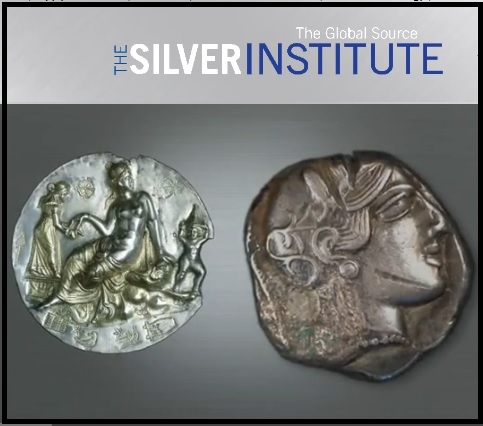
Silver Aiding New Medical Technologies
Washington, D.C, June 19, 2013 AEST (ABN Newswire) - Recent advances in biotechnology have brought a focus on silver's centuries-old role in medicine; that of acting as an important weapon in the fight against infection and disease. Silver is a critical element in bandages used to treat wounds and reduce the threat of infections in difficult environments. It has also been a key component of treatment in hospitals to reduce the spread of surgical infections in the operating room and in patient care areas.
The medical use of silver has helped reduce the growing threat of antibiotic-resistant germs spreading through a hospital population. "Today, advances in coatings technology has enabled medical equipment producers to introduce silver-coated instruments and hospital equipment for use in treating patients — eliminating, on contact, almost every bacterial or fungal exposure," said Michael DiRienzo, Executive Director of the Silver Institute. To that point, as one of many recent developments regarding silver and health, NMI Health, located in Reno, Nevada, recently launched its SilverCare Plus antimicrobial performance soft surface products at the 40th Annual Association of Professionals for Infection Control conference in Florida earlier this month. NMI Health exhibited its suite of SilverCare Plus performance fabrics including: scrub and lab coat material, patient gowns, linens, blankets and cubicle curtains. Collectively, these products account for over 90 percent of soft surfaces found in the patient environment, according to the company. NMI Health partnered with Noble Biomaterials to manufacture the SilverCare Plus line.
Prior to World War II the most powerful antibacterial and antifungal substance known to medicine was a colloidal silver - small particles of silver suspended in a fluid. Colloidal silver was effective against more than 650 different illness-causing bacteria, viruses or fungi organisms. Very small amounts of ultra-fine particles of silver have been found to be the best antiseptic for treating burn victims, and can be used in prolonged treatments. Bacteria, because silver breaks down cell walls and interferes with respiration and reproduction, have great difficulty in developing immunity to the metal.
The ability to coat materials such as polyurethane, silicone and textile fibers with either metallic silver or ionic silver compounds now provides clinicians with efficient means of overcoming difficult wound care and device-related infections, which have long proved costly and difficult to manage in terms of hospital care. Earlier this year, an in-vitro laboratory study conducted by Smith & Nephew, a global medical technology company located in London, England, indicated that a silver-coated antimicrobial dressing, ACTICOAT, could kill organisms that were recognized as among the most difficult to treat for antibiotic-resistant organisms, often referred to as "superbugs."
Modern technology is enabling manufacturers to employ silver to fight potential infection beyond the hospital walls. Many water purification systems, including those for spas and pools, rely on silver to keep water fresh. Samsung, for example, is using nanosilver technology in some of its home washing machines. Motorola uses silver embedded in plastic housings for many of its mobile phones. Other manufacturers are using silver in keys, and in cases of calculators and other hand held instruments. Paints are made more effective against molds, yeasts and various bacteria by the addition of silver. Silver, because of its anti-microbial properties, is now being added to scores of other products that consumers are in contact with every day: pens, cutting boards, steering wheels, toothbrushes, food wrappers, cosmetics, clothing, toilet seats, and other uses.
Today, the need to combat antibiotic-resistant superbugs and to suppress hospital-acquired infections has increased the importance and number of uses of silver infused products.
Contact
Michael DiRienzo
The Silver Institute
T: (202) 495-4030
e-mail: mdirienzo@silverinstitute.org
Media:
Victor Webb
Marston Webb International
T: (212) 684-6601
e-mail: marwebint@cs.com
| ||
|






